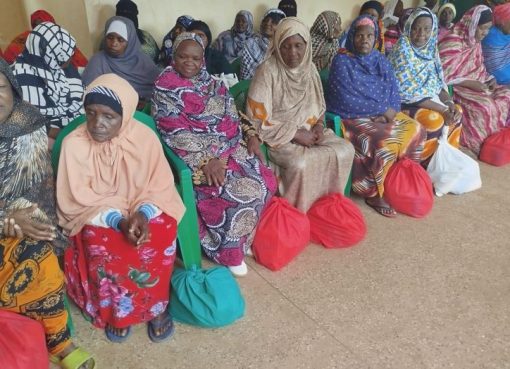When a fishing boat docks on the Lamu sea front in the early hours of a sunny Thursday morning, the busy fish street area in Amu Island suddenly jolts to life.
It is a sight to behold as fish traders haggle with fishermen over prices whose vessels belch out fish by the scale, ranging from red and white snappers, tuna, parrot fish, swordfish and even baby sharks are weighed, gutted and either sliced into fillets or chopped into chunks ready for retail.
For Ahmed Famau, 30, a wholesale fish trader, Amu Island hosts the fishing industry in Lamu due to a number of factors ranging from the lost fishing grounds of Kililana that was dredged to make way for the Lamu Port, to the downturn in the country’s economy that has recently been impacted by COVID-19.
“Before COVID-19 happened, the Chinese personnel based in the LAPSSET project used to come to Lamu to buy fish as much as 50 to 80 kilos a day,” Famau states, adding that since the turn of the epidemic the Chinese have mostly kept to themselves leading to loss of income.
“The Lamu County government on its part has not provided the fishing sector with a conducive environment with which the sector’s potential can be fully explored,” Famau states adding that despite the sector being the economic cornerstone for the coastal county, there has been very little investment in the development of Lamu’s fishing sector.
He opines that despite the unlimited potential that the fishing sector has always presented for Lamu’s economy, fishing is still practiced using traditional fishing dhows that are fitted with low torque engines.
Indeed with the continued lack of adequate funding towards a sector that employs at least 5,000 fishermen directly and creates at least 10,000 jobs indirectly, development funding for the fishing sector in the 2019/2020 county development budget stood at a paltry Sh. 12 million.
However, for fish industry players like Ahmed Famau, the answer to the question of how to grow the fishing industry in Lamu, and more so the Blue economy lies simply in the county government investing in infrastructure that would enable the sector to thrive.
“We need cold storage facilities as is usually promised in every election cycle, to make it more affordable to preserve our fish rather than having to resort to cold boxes which we usually have to fill with ice to the tune of Sh. 18,000 monthly,” Famau reveals.
Sentiments echoed by a fellow fish trader, Salma Mohammed who states that the county government should also speed up in rehabilitating the fish market that is currently under construction.
“As it stands now, customers do not have a particular area where they can go to buy fish with traders scattered all over with some having taken to hawking their wares across the Island,” Salma notes.
She further states that the decline of the fishing industry may also be because of a strained economy that has made it more expensive to trade.
“Many hotels which were active clients were forced to close down, during the height of the COVID-19 pandemic, leaving suppliers such as ourselves with very few options of where to sell,” she adds.
She further recalls how last year, when the fishing industry was shaken by effects of COVID-19, the county government had promised to buy fish from the fishermen and traders and provide residents with fish as relief.
However, she notes nothing came of the governor’s plan to support the fishing industry as it faced off with the COVID-19 crisis.
As part of raft of measures put in place last year by the county government for the tourism and fishing industry that were hard hit by the impact of COVID-19, Fahim Twaha’s administration had mulled the prospect of buying fish from fishermen for distribution to needy homes to cushion the fisherfolk as well as provide food for residents during the crisis period.
“Despite the industry being the main employer, for boat owners, operators, fishermen and traders, there is a sense of lethargy on the county government’s part to improve its main economic pillar,” Somo Ahmed Somo, the Lamu Fishermen Association Chairman laments.
He states that five years on – even with the reduction in fish sales, there has been no respite for the fishermen who have yet to get reparations for losing their rich fishing grounds of Kililana area that has been transformed into the Lamu Port area.
“Once dredging started at the Kililana area, fish in the area disappeared and most fishermen have been forced to look further deep sea,” Somo states, adding that deep sea fishing in itself has presented a fresh dilemma for the fishermen who only have traditional fishing vessels.
The fisherfolk have also yet to receive their Sh 1.76 billion compensation from LAPSSET and KPA that was arrived at a High court ruling in 2016, in which Lamu sea fishermen were awarded the hefty settlement after losing their traditional fishing grounds in Kililana area.
For Mohammed Shaffi, a seasoned fisherman based in Amu Island, the traditional fishing that most Lamu fishermen practice is a see saw venture for that has its ups and downs, and highly dependent on the weather, which dictates the day’s catch.
“On windy days, there are less fish in comparison to when the ocean is calm and the weather is cool like in December, January and February just before the rainy season when Lamu registers the largest catch,” Shaffi says.
According to Mohammed Ali, Chairman of the Faza Beach Management Unit the ban on night fishing in between 2015 and early 2017 also played a role in the fishing industry’s decline.
“Our sector has been steadily dwindling since the ban on night fishing was imposed as a measure to curb Al-Shabaab movement in and out of the county, however, even now two years after the ban has been lifted, the fishing industry is still heavily policed and regulated,” Ali states.
“Lamu’s traditional waters have been overfished and sometimes fishermen go as far Kiunga near the Kenya-Somali waters which are now in contention due to a maritime dispute between the two nations,” Ali says, adding that before the tiff between the two nations the fishing industry between the two countries had thrived.
“The maritime dispute between the two countries will soon be resolved and trading relations restored, and citizens from both sides of the aisle should take heart in the cordial relationship that we (Kenya) have enjoyed with Somali,” Trade and Industry Principal Secretary Ambassador Johnson Weru told KNA in a previous interview.
Sentiments echoed by Lamu County Commissioner Irungu Macharia who states that the fishing industry should have faith in the national government’s commitment to ensure that the Blue Economy from Lamu’s border to Somalia to Kwale’s border with Tanzania thrives.
“The county government has made commitments despite the harsh economic downturn that the country is facing to disburse funds to counties, needed to build key infrastructure such as cold storage facilities, fish landing sites as well as rehabilitate the Amu Island fish market,” Fisheries County Director Simon Komu reveals.
ENDS





